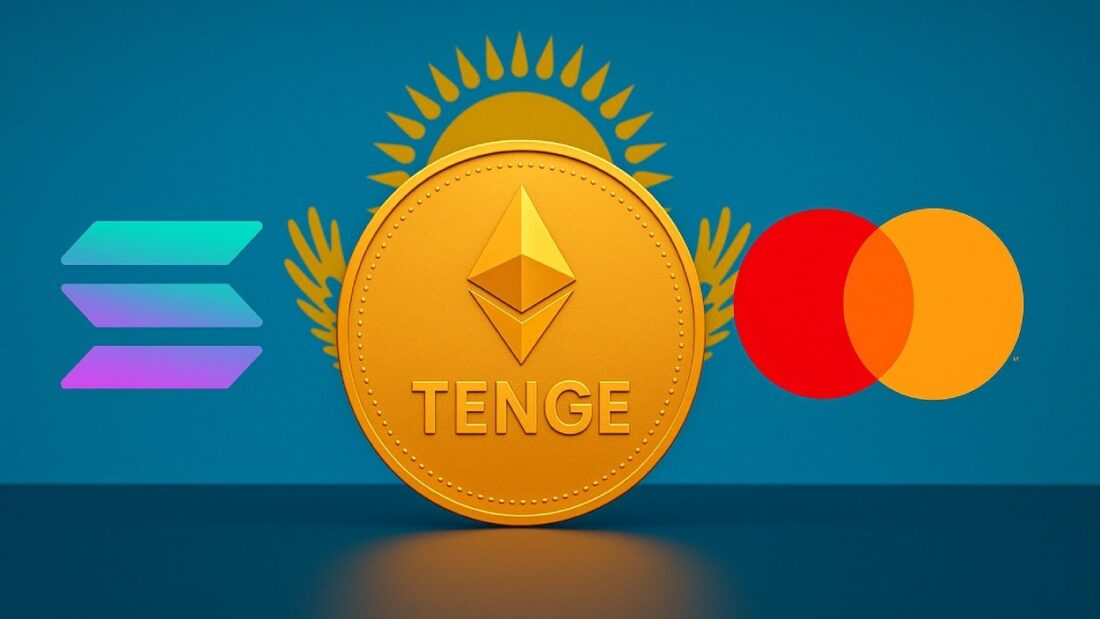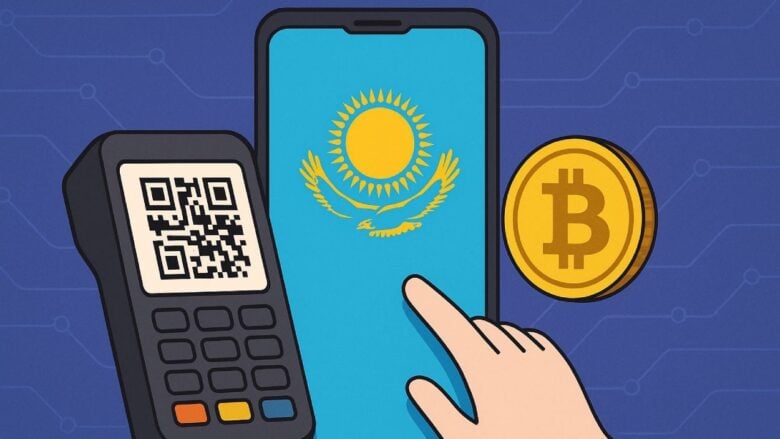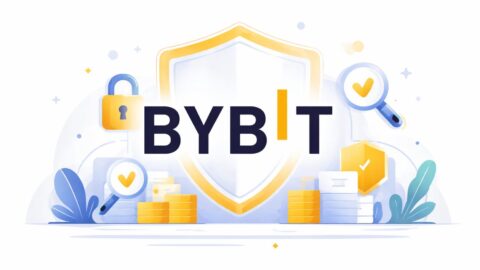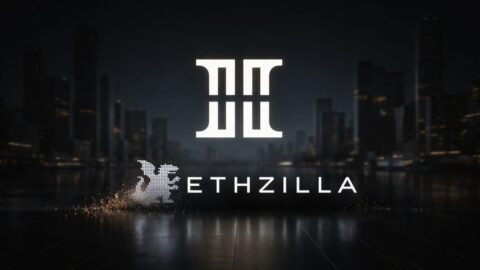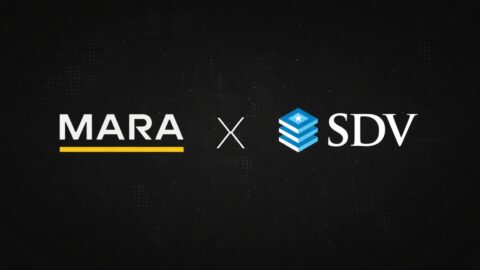Kazakhstan has officially launched its first stablecoin, Evo (KZTE), pegged to the national currency and supported by Solana’s blockchain and Mastercard’s global payments network.
Key Takeaways
- Kazakhstan has launched the Evo stablecoin (KZTE) as part of a central bank-led initiative within the Digital Assets Regulatory Sandbox.
- Solana provides the blockchain infrastructure, ensuring fast and cost-efficient transactions, while Mastercard will help integrate KZTE with global stablecoin issuers.
- The Evo stablecoin is issued by Intebix crypto exchange and Eurasian Bank, with the National Bank of Kazakhstan offering regulatory oversight.
- This marks a milestone in Kazakhstan’s digital finance strategy, aiming to enhance financial inclusion and modernize traditional systems.
What Happened?
The National Bank of Kazakhstan has introduced a pilot version of a stablecoin called Evo (KZTE), which is backed 1:1 by the Kazakhstani tenge. The project was launched in collaboration with blockchain giant Solana and payment processor Mastercard. Evo is being issued by local crypto exchange Intebix and Eurasian Bank, with Mastercard and Solana supporting the technology and global integration aspects. The stablecoin is currently being tested under the supervision of the central bank’s Digital Assets Regulatory Sandbox.
🚨JUST IN: Kazakhstan’s central bank has launched Evo (KZTE), a tenge-pegged stablecoin built on @Solana. As part of its regulatory sandbox, Mastercard will enable $KZTE to be used for card payments, expanding the bridge between crypto and traditional finance. pic.twitter.com/x55Gre5i0j
— SolanaFloor (@SolanaFloor) September 23, 2025
National Stablecoin Built for Financial Inclusion
Kazakhstan’s Evo stablecoin is being promoted as a “national stablecoin” that merges traditional banking with crypto innovation. It has multiple use cases, including:
- Enabling crypto-to-fiat conversions through local exchanges.
- Facilitating card payments linked to cryptocurrency balances.
- Supporting broader adoption of blockchain in everyday financial services.
According to Intebix founder Talgat Dossanov, this initiative is the first time Kazakhstan’s central bank has taken such a hands-on role in stablecoin issuance. He called the Evo project a major step toward integrating crypto innovation with legacy financial systems.
Getting ready for the launch of the first KZT backed stablecoin on Solana – KZT Evo (Evolution of Tenge). In partnership with the National Bank of Kazakhstan, @Intebix , @Mastercard, Eurasian Bank and @SuperteamKZ
— Talgat Dossanov (@cryptolgi) September 22, 2025
Big win for Kazakhstan and the entire web3 community pic.twitter.com/L6VsOqWLsF
Solana and Mastercard Play Pivotal Roles
The Evo stablecoin runs on the Solana blockchain, chosen for its high-speed and low-cost transaction capabilities. This infrastructure is critical for enabling smooth payment experiences and large-scale stablecoin adoption. Solana has also signed a Memorandum of Understanding with Kazakhstan’s Ministry of Digital Development to build a special blockchain economic zone in the country.
Meanwhile, Mastercard will work on integrating KZTE with global stablecoin issuers, potentially opening the door for cross-border payments and international utility. The collaboration could position Kazakhstan as a regional leader in blockchain-based financial services.
Part of Kazakhstan’s Larger Digital Strategy
The launch of Evo fits within Kazakhstan’s broader strategy to create a national digital asset ecosystem. The country is aiming to combine:
- CBDCs like the digital tenge, launched in November 2023.
- USD-pegged stablecoins, recently approved for fee payments.
- A potential national crypto reserve currently being explored.
Governor Timur Suleimenov has emphasized that blockchain and digital assets can unlock new services, financial inclusion, and economic modernization. He called Evo’s launch a milestone for the country’s evolving financial infrastructure.
Kazakhstan has already made a name for itself in crypto, especially in Bitcoin mining, where it once held a 13% share of the global hashrate. With Evo, the country is now focusing on real-world blockchain applications beyond mining.
CoinLaw’s Takeaway
Honestly, this is a bold and strategic move by Kazakhstan. In my experience, countries rarely give central banks such an active role in stablecoin projects. That’s what makes Evo so interesting. It’s not just a fintech startup launching a token, it’s a full-scale collaboration with real regulatory backing. With Solana handling the blockchain and Mastercard bridging the global payments side, KZTE could become a model for other emerging markets. I found Kazakhstan’s approach refreshingly pragmatic: use blockchain where it helps most, but keep oversight tight. It’s a lesson more governments could learn from.

